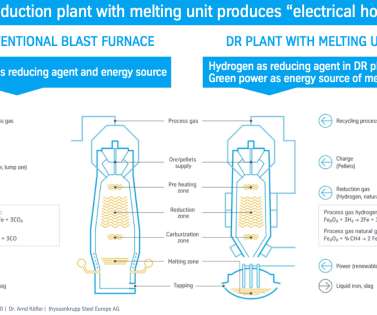thyssenkrupp greenlights construction of €2B hydrogen-powered direct reduction plant for low-CO2 steel
Green Car Congress
SEPTEMBER 9, 2022
This is a further step for our team at Steel Europe, for our partners and for the Ruhr region. —Bernhard Osburg, Chairman of the Executive Board of thyssenkrupp Steel Europe AG. In this way, thyssenkrupp is accelerating the start of low-CO2 steel production. With its capacity of 2.5












Let's personalize your content